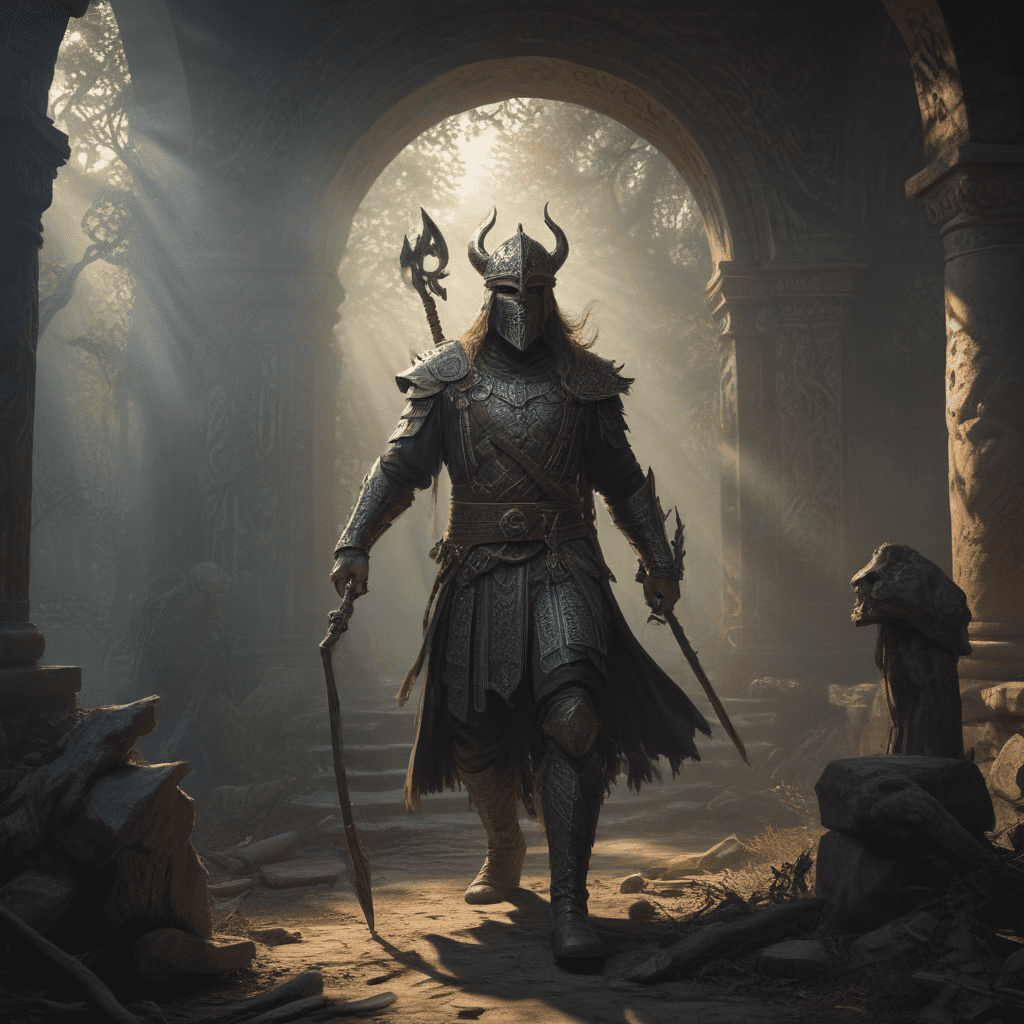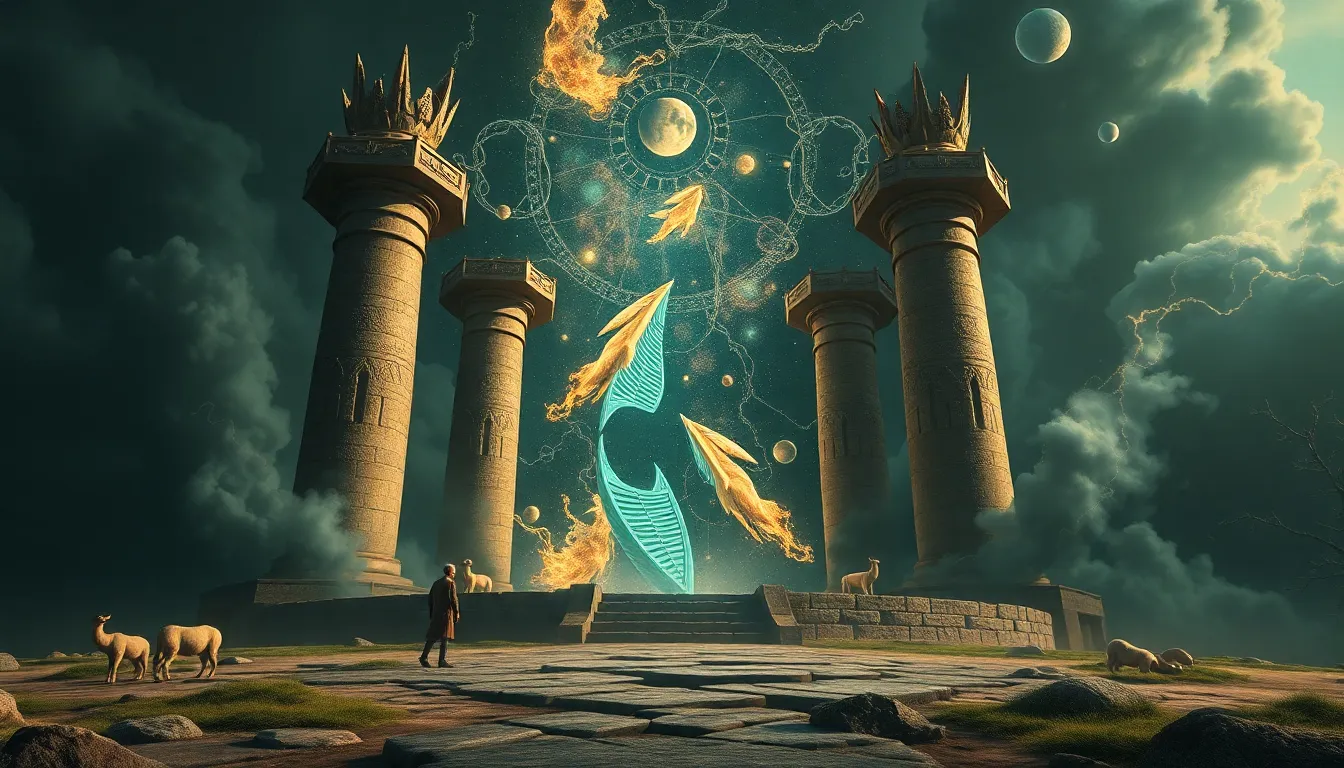The Symbolism of Shadows in Slavic Mythology
1. Introduction
In the tapestry of ancient Slavic mythology, the concept of shadows holds a profound significance, extending beyond their literal form as projections of darkness. They embody a complex interplay between the seen and unseen worlds, representing the unknown, evil, wisdom, and the eternal cycle of life and death.
2. Shadow as a Representation of the Unknown
Shadows in Slavic folklore often evoke a sense of the unknown and enigmatic. They lurk within forests, caves, and other places shrouded in mystery, where they hide secrets and dangers that challenge the boundaries of human understanding. Slavic tales are replete with creatures associated with darkness, such as the enigmatic Vodyanoy, a water sprite known for his ability to transform and lure the unwary to their doom.
3. Shadows as Embodiments of Evil
Slavic mythology is deeply intertwined with beliefs in the supernatural, and shadows often serve as manifestations of malevolent forces. They can represent the presence of evil spirits, demons, or curses that bring misfortune upon those they touch. In many tales, shadows are depicted as entities that can possess or haunt individuals, driving them to madness or despair.
6. Shadows as Messengers from the Otherworld
In Slavic mythology, shadows can act as intermediaries between the realm of the living and the afterlife. They are believed to be able to carry messages from the departed or convey omens of future events. Dreams are often seen as a form of communication with the otherworld, where shadows play a pivotal role in revealing insights or guiding individuals towards destiny.
7. Shadows as Manifestations of the Doppelganger
Slavic folklore holds the concept of the doppelganger, a double or shadow-self that exists alongside an individual. This shadowy counterpart can symbolize hidden aspects of oneself, both good and evil, and its appearance is often seen as a harbinger of impending change or a reminder of mortality. The doppelganger is also associated with shapeshifting, further emphasizing the enigmatic and transformative nature of shadows.
8. The Power of Shadows to Transform
In Slavic mythology, shadows possess the ability to transform both physically and symbolically. They can take on different shapes and sizes, mimicking objects, animals, or even human figures. This metamorphic nature reflects the transformative potential inherent in the unknown and the power of darkness to alter and shape reality. Shadows can become a source of strength or weakness, depending on how they are interpreted and utilized.
9. Shadows and the Cycles of Life and Death
Shadows play a crucial role in the Slavic understanding of the cycles of life and death. They are seen as companions on the journey through existence, mirroring the individual's experiences and reflecting their transition from birth to death and beyond. In this sense, shadows represent the ephemeral nature of existence and the inevitability of the end. Yet, they also embody a sense of continuity, as the shadows of ancestors are believed to watch over and guide their descendants.
10. Conclusion
In Slavic mythology, the symbolism of shadows encompasses a vast and intricate tapestry of beliefs. They represent the unknown, the embodiment of evil, the guardians of ancient knowledge, the messengers from the otherworld, the manifestation of the doppelganger, the power of transformation, and the reflection of the cycles of life and death. Through their multifaceted nature, shadows challenge the boundaries of perception, reminding us of the hidden forces that shape our world and our understanding of it.
FAQ
What role do shadows play in Slavic folklore?
Shadows in Slavic folklore embody a complex interplay between the seen and unseen worlds, representing the unknown, evil, wisdom, and the eternal cycle of life and death.Are shadows associated with evil in Slavic mythology?
Shadows often serve as manifestations of malevolent forces, such as evil spirits, demons, or curses, bringing misfortune upon those they touch.How are shadows connected to the afterlife in Slavic beliefs?
Shadows can act as intermediaries between the realm of the living and the afterlife, carrying messages from the departed or conveying omens of future events.
What is the significance of doppelgangers in Slavic mythology?
Doppelgangers, or shadow-selves, symbolize hidden aspects of an individual and are associated with shapeshifting, representing the metamorphic nature of shadows.How do shadows reflect the cycles of life and death in Slavic folklore?
Shadows mirror the individual's experiences and accompany them through the journey of life, embodying the ephemeral nature of existence and the inevitability of death, while also representing a sense of continuity through the guidance of ancestral shadows.



